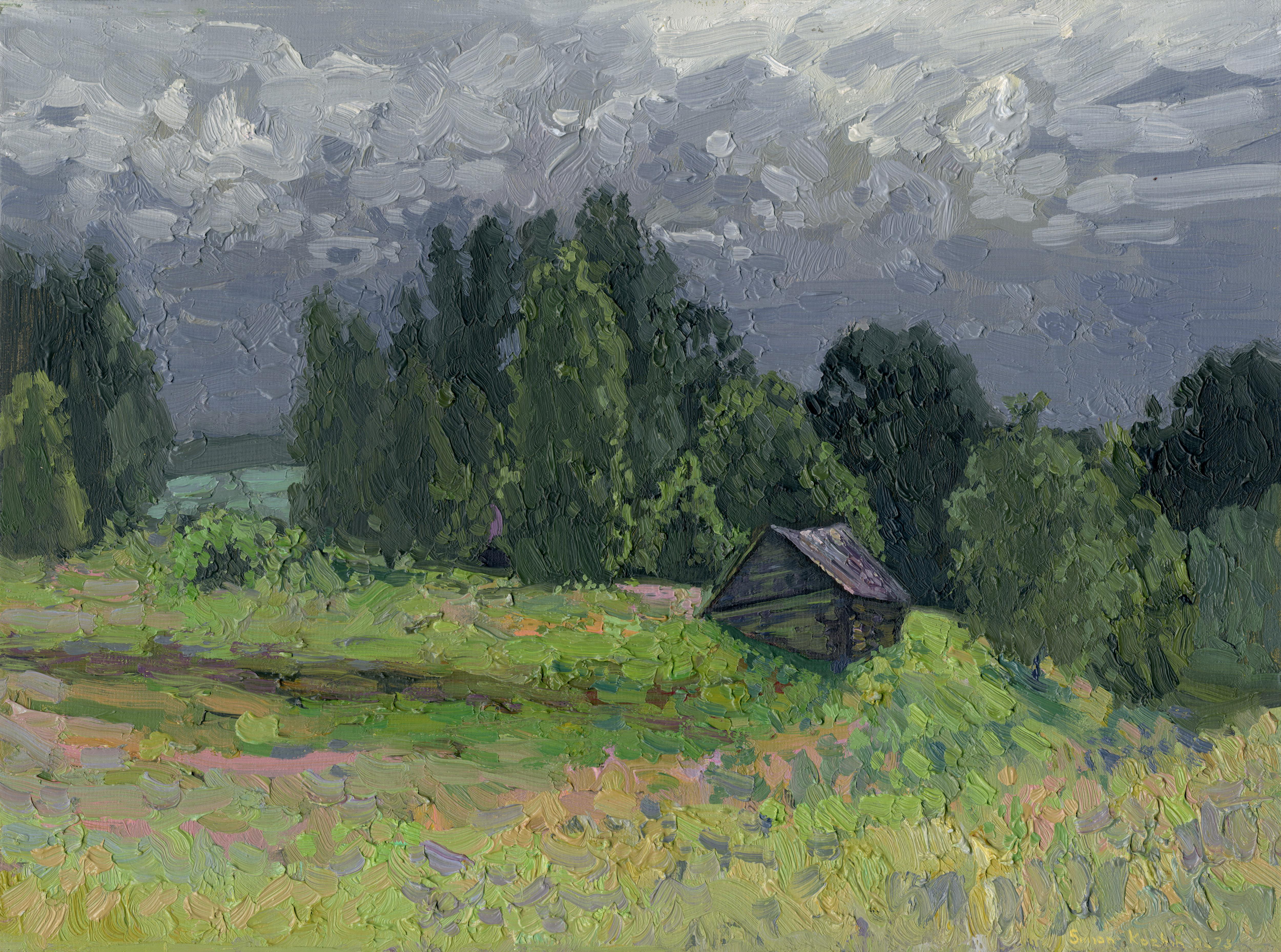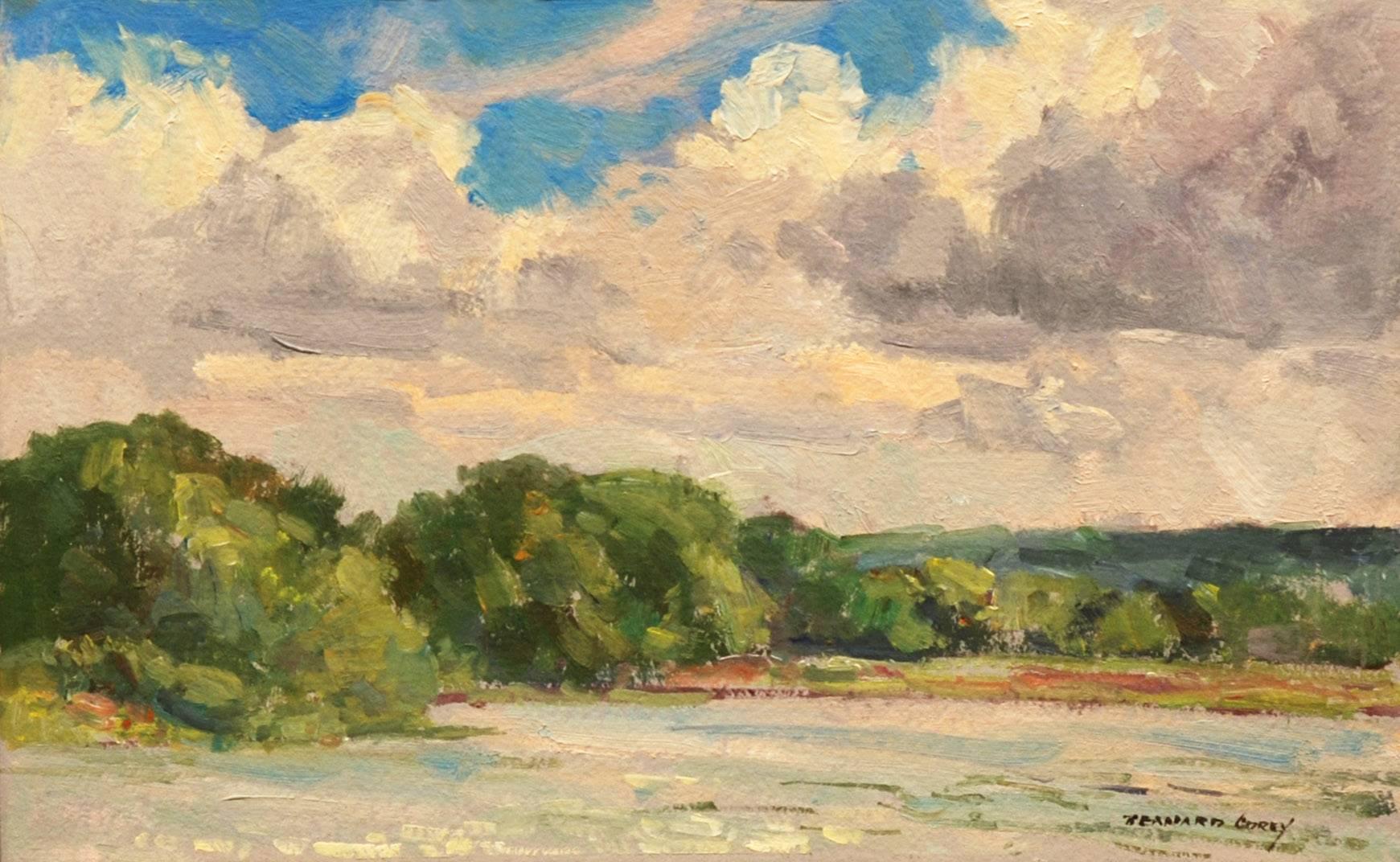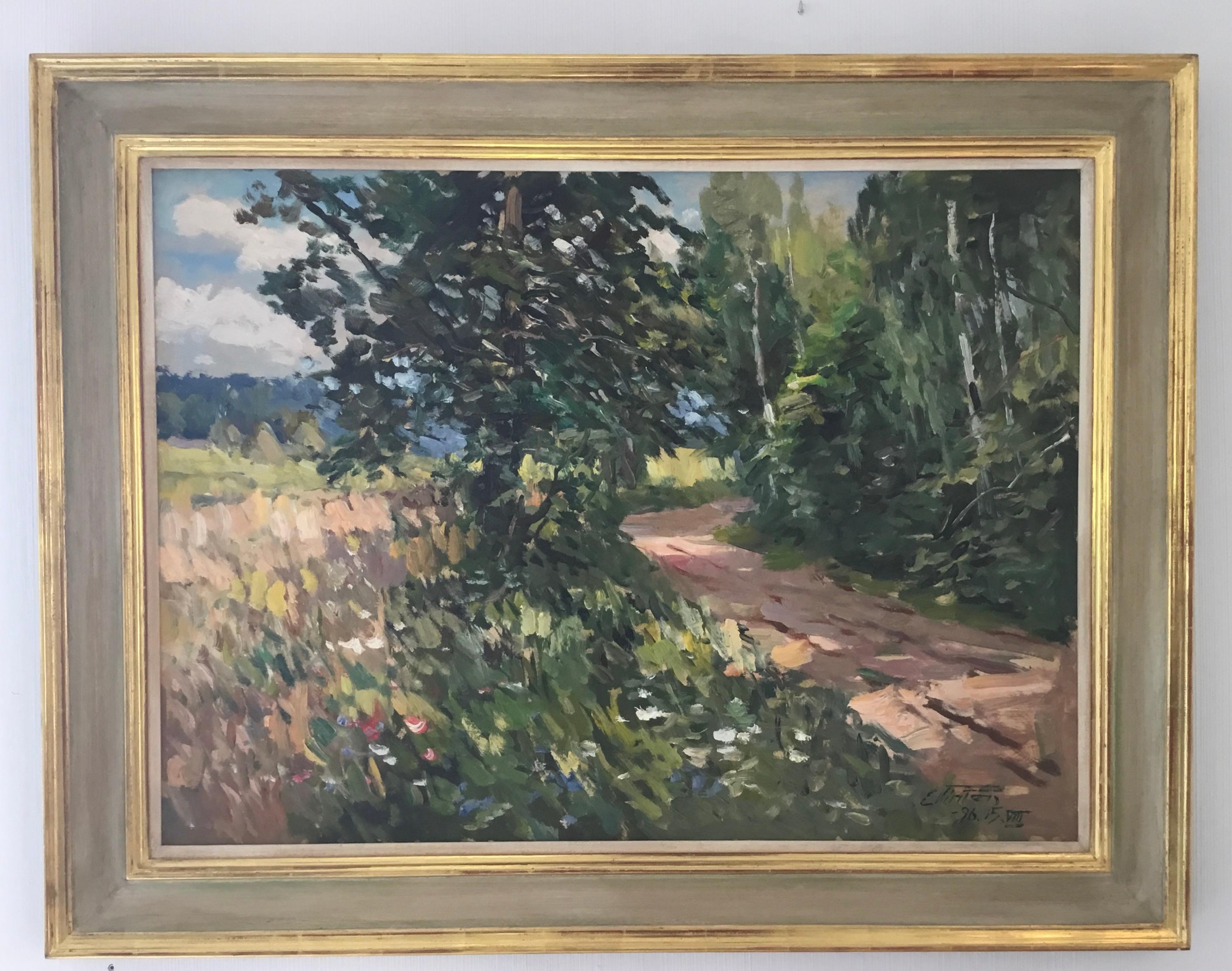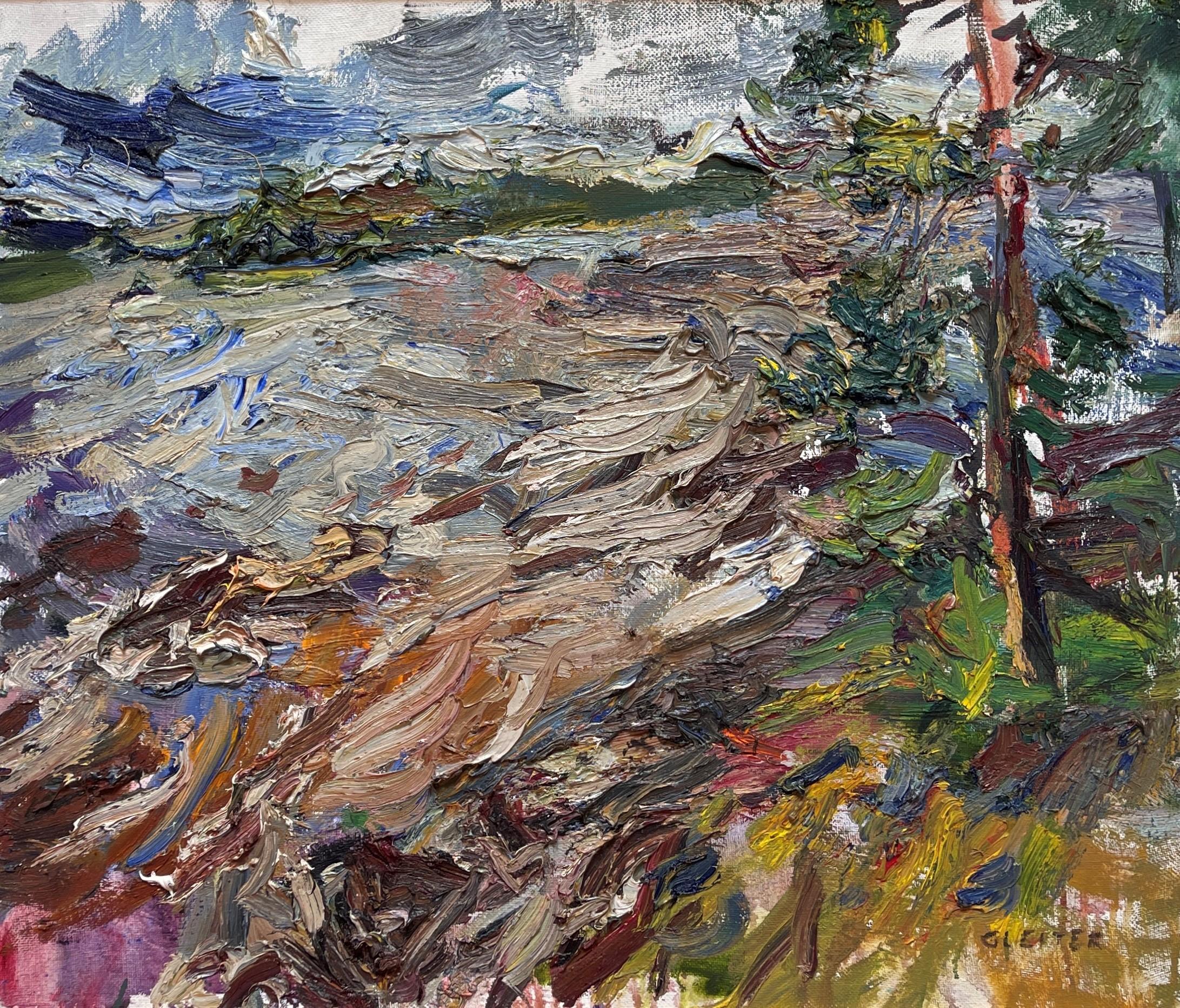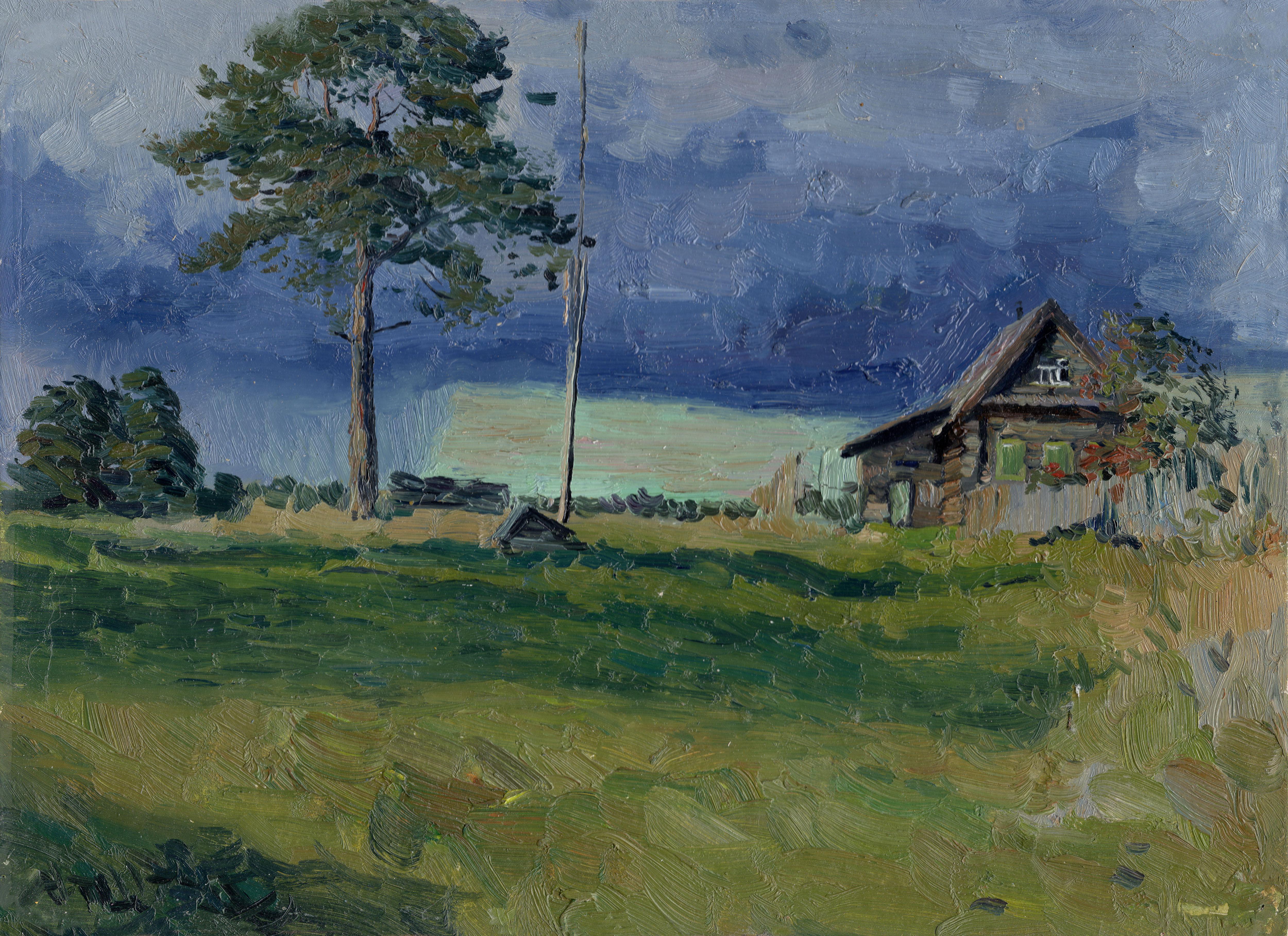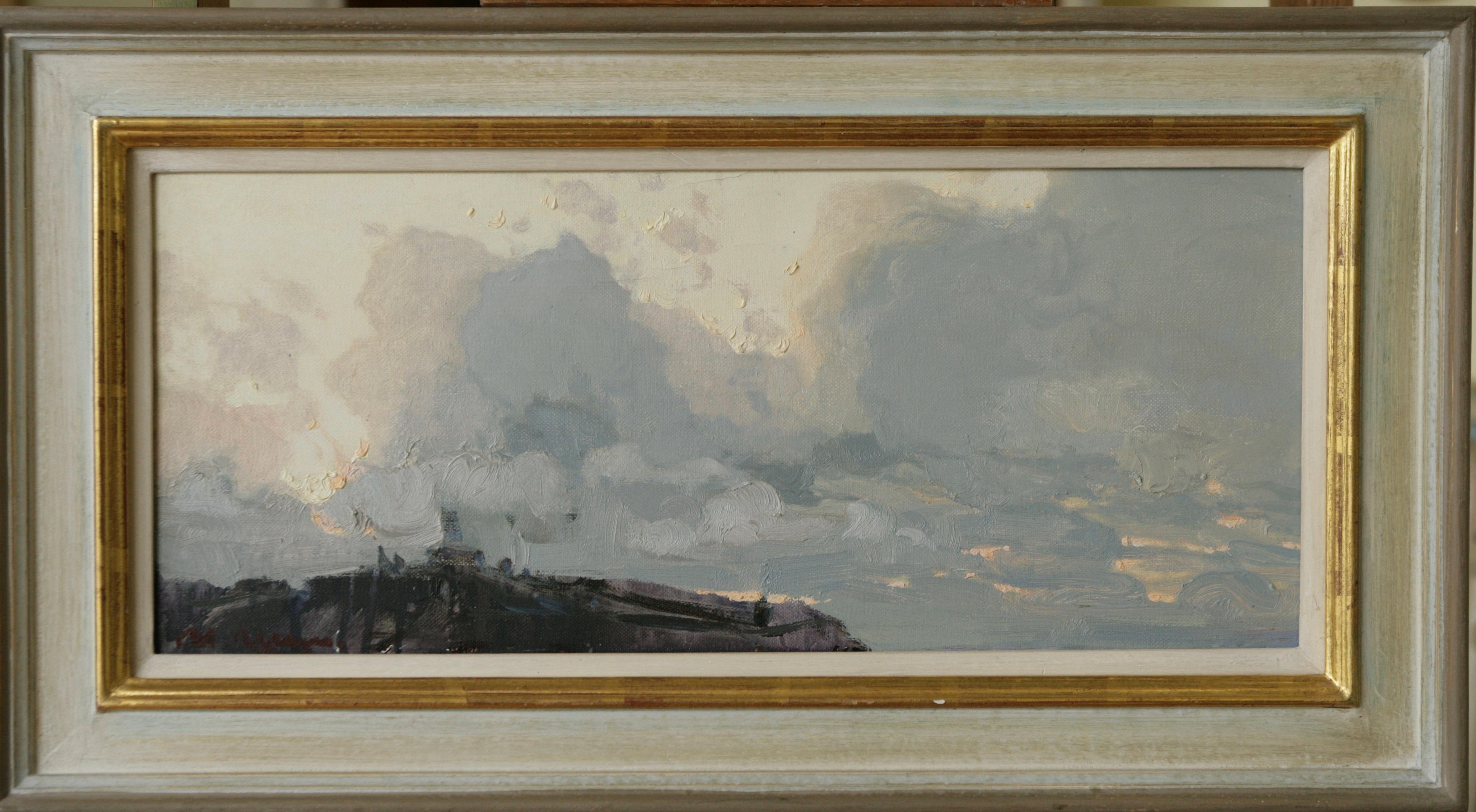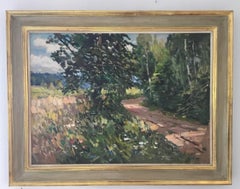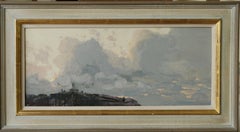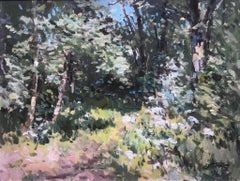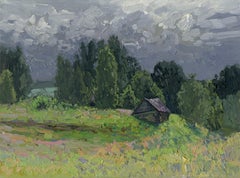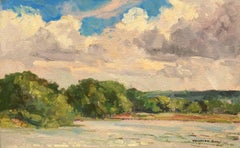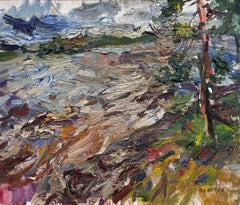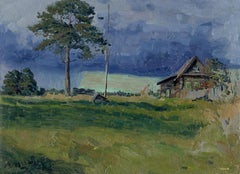Items Similar to PASSING STORM SUMMER .EDAGAR VINTERS 1919 2014 LATVIAN IMPRESSIONIST
Want more images or videos?
Request additional images or videos from the seller
1 of 14
Edgar VintersPASSING STORM SUMMER .EDAGAR VINTERS 1919 2014 LATVIAN IMPRESSIONIST1996
1996
$3,101.88
£2,250
€2,627.43
CA$4,288.89
A$4,708.67
CHF 2,456.52
MX$56,981.48
NOK 30,788.71
SEK 29,011.06
DKK 19,613.05
About the Item
Born in Riga, Edgars Vinters was the only child of the facade and decoration painter Hermanis Vinters (1874–1939) and his wife Anna, née Kalniņa, (1879–1953). As a ten-year-old boy he met with the popular pastelist Voldemārs Irbe, who detected the boy’s talent, taught him the basics of pastel painting and opened his eyes to the beauty of nature in its so-called minor details. From 1935 on, he wrote small articles for children's and youth magazines, which he illustrated with pen and ink drawings and linocuts.[2] With the money he made, he contributed to the school fee for the commercial college he attended until 1940, after a change of school.
Resulting from contact he made with the painter Hugo Kārlis Grotuss, from 1937 Vinters changed his painting style. Grotuss encouraged him to give up ‘the dark phase’ he was in through Irbe, to use brighter primers and to show more briskness and colours in his paintings. A porcelain factory engaged him to paint a series of porcelain plates
for president Kārlis Ulmanis.
After he had taken his high-school-diploma, he joined the Latvian Art Academy and until 1944 studied under the professors Jānis Kuga, Leo Svemps, Jānis Cielavs, Valdemārs Tone, Jānis Annuss, Kārlis Miesnieks und Vilhelms Purvītis. In 1944, Vinters had to drop out of his studies; he was drafted for the service in the Latvian Legion and deployed near Toruń on the Vistula River. In 1945 he was taken prisoner of war by the Soviet Army and deported to a POW camp near Moscow. There Russian officers made out his artistic abilities and facilitated the establishment of an atelier. During this time Vinters made a series of drawings and paintings, which he for the first time showed to an art lover, who had worked about his life and his works and which were published in an art book in 2012. Back in Riga in 1947, he could teach art and drafting at a secondary school. At the same time, he attended Janis Rozentāls Art Highschool and got his qualifications in teaching in 1949. Vinters painted objectively, mostly landscape painting. Early works from childhood and youth were made with pencil and ink pen; later, for a short time he made linocuts and pastel works and then found his means of painting, his favorite being oil painting. Frequently in his craft he made aquarelles and, as a speciality during the 1970s, monotypes. But oil painting remained his prime means of expression for his interpretations of his beloved Latvian landscapes during the seasons, of flowers and townscapes.
During the time of the German occupation, Vinters published drawings and aquarelles in German Journals.[3]
During the Soviet period, his exhibitions were confined to Riga and other cities of the Latvian Socialist Soviet Republic. After the liberation of Latvia in 1991 his art increasingly found attention and appreciation.[4] Periodically exhibitions were organized in Latvia; later, beginning in 1993, in the UK and the USA, and from 2006 in Germany.[5] Increasingly, his works are presented by the art trade worldwide.
During a state visit by Turkish President Abdullah Gül on April 2, 2013 in Latvia, the Latvian President Andris Bērziņš presented to the Turkish presidential couple as a gift a painting of Edgars Vinters.
- Creator:Edgar Vinters (1919 - 2014, Latvian)
- Creation Year:1996
- Dimensions:Height: 18.12 in (46 cm)Width: 23.63 in (60 cm)Depth: 0.79 in (2 cm)
- Medium:
- Movement & Style:
- Period:
- Condition:
- Gallery Location:Pollenca, ES
- Reference Number:1stDibs: LU1245215946422
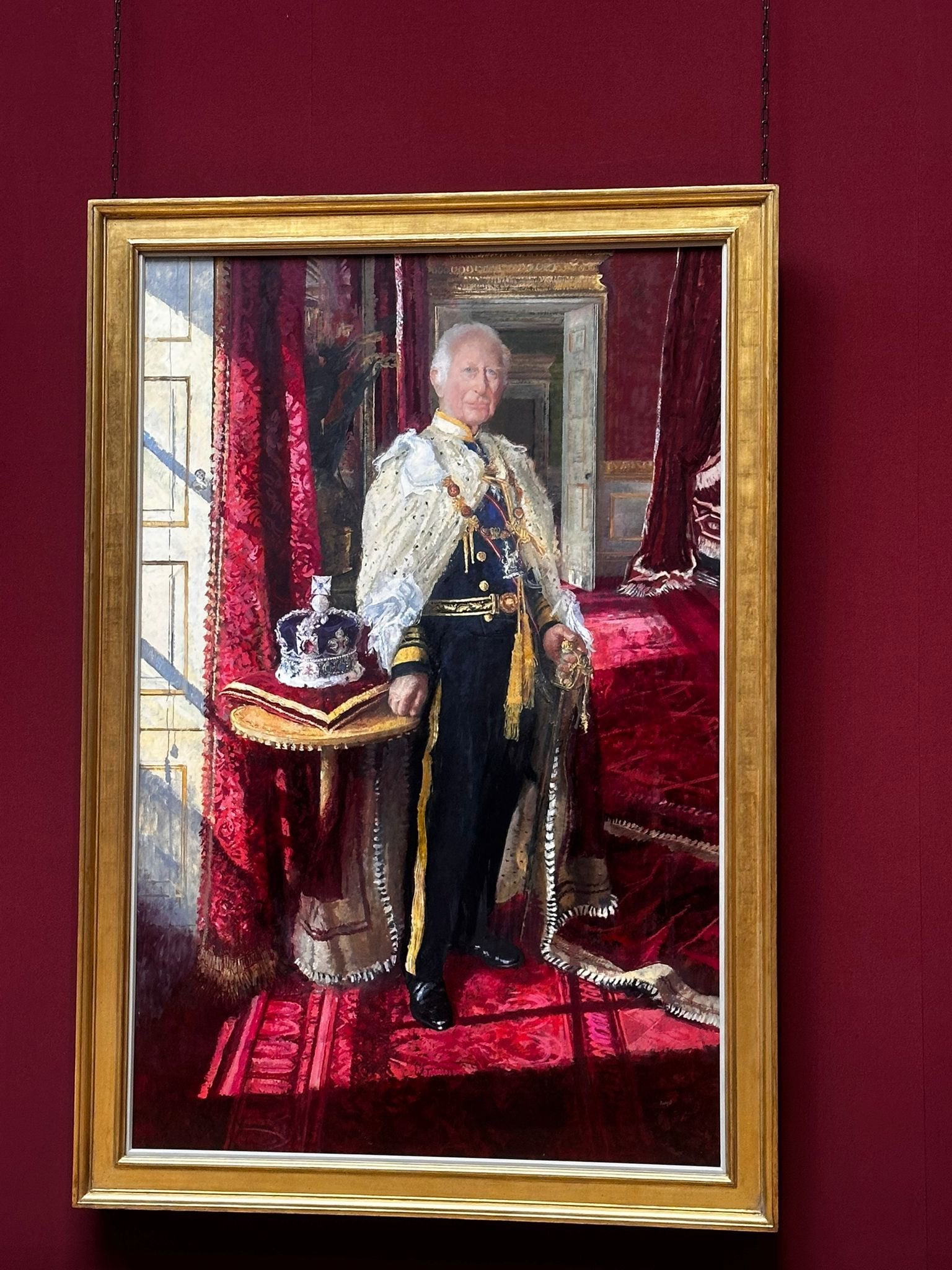
About the Seller
5.0
Vetted Professional Seller
Every seller passes strict standards for authenticity and reliability
Established in 2003
1stDibs seller since 2019
39 sales on 1stDibs
- ShippingRetrieving quote...Shipping from: Pollenca, Spain
- Return Policy
Authenticity Guarantee
In the unlikely event there’s an issue with an item’s authenticity, contact us within 1 year for a full refund. DetailsMoney-Back Guarantee
If your item is not as described, is damaged in transit, or does not arrive, contact us within 7 days for a full refund. Details24-Hour Cancellation
You have a 24-hour grace period in which to reconsider your purchase, with no questions asked.Vetted Professional Sellers
Our world-class sellers must adhere to strict standards for service and quality, maintaining the integrity of our listings.Price-Match Guarantee
If you find that a seller listed the same item for a lower price elsewhere, we’ll match it.Trusted Global Delivery
Our best-in-class carrier network provides specialized shipping options worldwide, including custom delivery.More From This Seller
View AllTHE SMALL ROAD TO THE VILLAGE.EDAGAR VINTERS 1919
By Edgar Vinters
Located in Pollenca, Illes Baleares
Born in Riga, Edgars Vinters was the only child of the facade and decoration painter Hermanis Vinters (1874–1939) and his wife Anna, née Kalniņa, (1879–1953). As a ten-year-old boy h...
Category
21st Century and Contemporary Impressionist Landscape Paintings
Materials
Oil
PASSING STORM ..Igor Shipilin contemporary Russian artist
By Igor Shiplin
Located in Pollenca, Illes Baleares
Igor Shipilin was born in 1961 in Crimea, Sevastopol. After finishing the elementary school he chose his further education to be directed towards art and painting. He graduated from ...
Category
Early 2000s Impressionist Landscape Paintings
Materials
Oil
PASSING STORM.Roy Petley contemporary British artist
By Roy Petley
Located in Pollenca, Illes Baleares
Roy Petley is a contemporary British plein-air painter known for his impressionistic depictions of British coastal scenes. His lush paint handling is often likened to the works of Jo...
Category
2010s Impressionist Landscape Paintings
Materials
Oil
IN THE SHADE OF THE TREES.EDGAR VINTERS 1914_2014 impressionist
By Edgar Vinters
Located in Pollenca, Illes Baleares
Born in Riga, Edgars Vinters was the only child of the facade and decoration painter Hermanis Vinters (1874–1939) and his wife Anna, née Kalniņa, (1879–...
Category
21st Century and Contemporary Impressionist Landscape Paintings
Materials
Oil
BANK HOLIDAY PASSING STORM Roy Petley 1950 renowned Contempary British artist
By Roy Petley
Located in Pollenca, Illes Baleares
Roy Petley
Born 3 April 1950 (
Grantham, Lincolnshire
Nationality British
Known for Painter
Movement Impressionism
Roy Petley (born 3 April 1950) is a British painter.
Petley pain...
Category
21st Century and Contemporary Impressionist Landscape Paintings
Materials
Oil
AFTER THE STORM.ROY PETLEY BRITISH contemporary impressionist
By Roy Petley
Located in Pollenca, Illes Baleares
Roy Petley
After the storm as a freshness of colour and lucidity of brushstrokes found in his repertoire ensures his paintings remains exciting to the eye ‘Throughout his life he continued to pursue his objective of reproducing the ‘atmosphere and light’ that he sees all around him,’ The paintings that we n an age of “virtual reality” when the art of picture making is possible through the screen, and imagery is well considered when floating in formaldehyde, it is reassuring to find an evergreen of traditional values. Roy Petley has always lived life to the hilt, but he likes his friends to share his successes. He has known tough beginnings, but is aware of his talent and when he uses it to the full effect, it is devastating.
Choosing familiar subjects he is able to embody each with feeling. Each image has something to say – the colour and draughtsmanship put in with a seeming casualness immediately awakening the viewer to the freshness of the work.
More astonishing are his continuous successes, for whilst he has already become a legend in his own space, recent exhibitions overseas have proved that in reality his particular brand of figurative art is still very much alive and increasingly in demand.
Roy Petley was the first born to what became a large family in Grantham, Lincolnshire in April 1951. Little affection was shown to him, and the only discipline was the bad tempter of his mother; by the time he was five he had been removed from his family and taken to the Woodlands school near Uckfield, Sussex. A home as well as a school for abandoned children. He cannot remember when he first began to draw – ‘Always, always’ is his claim – but it was at this school, and in the charge of his art master whose name he recalls as Price. He was a resident at the school for ten years, and tells a story fit for Vasari in that in being let loose in the art room, in a frenzied flurry of activity, he used in one week all of the material available for all of the pupils for one whole term.
Formal recognition of his talent came when in 1967 at the age of sixteen he was awarded a place in the Brighton School of Art. With his family and educational background it had been decided without reference to him that he needed safe career prospect offered by training in commercial art. He found himself compelled to draw carefully and in great detail aesthetically unrewarding objects. When he asked if he might change to fine art he was refused. Regretting only that in some sense he had been betrayed by his art master at Woodlands, he cut short his term at University and hitch-hiked to Italy to see and learn from the great masterpieces that has so inspired him. He settled in Florence, haunting the Uffizi and Pitti galleries, examining with the closest scrutiny everything from Walter Paters...
Category
21st Century and Contemporary Impressionist Landscape Paintings
Materials
Oil
You May Also Like
Thunderstorm in Lopatino
By Simon Kozhin
Located in Zofingen, AG
I saw the motif with the old bathhouse from the road and decided to paint it with an approaching thunderstorm. In this oil study, painted from life in a couple of hours, I captured t...
Category
2010s Impressionist Landscape Paintings
Materials
Cotton Canvas, Oil, Cardboard
"Summer Clouds, " Bernard Corey, 20th century, impressionist, landscape, oil
By Bernard Corey
Located in Wiscasset, ME
Bernard Corey gained national recognition for his beautifully rendered landscapes paintings of the New England countryside and shore. Even in his early eighties, the artist rarely mi...
Category
20th Century Impressionist Landscape Paintings
Materials
Oil
"Stormy Day Northern Lakes" (2022), Original Landscape Oil Painting on Linen
By Ulrich Gleiter
Located in Denver, CO
Ulrich Gleiter's (EUR based) "Stormy Day Northern Lakes" is an original, handmade oil painting on linen, depicting a vast lakeside in the Finnish foothills. This piece measures 23.60...
Category
2010s Impressionist Landscape Paintings
Materials
Linen, Oil
Before the storm. Karmanovo
By Simon Kozhin
Located in Zofingen, AG
Thunderstorms were frequent and noisy that summer. Immediately after the rain and thunderstorm, the sun peeked out, but a new thunderstorm was gathering quite quickly. This happens i...
Category
Early 2000s Impressionist Landscape Paintings
Materials
Oil, Cardboard
Before The Rain. Baltic Sea. Sweden
Located in Oslo, NO
Seascape, Sweden, horizontal, nature, sea, impressionism
The painting "Before the Rain. Baltic Sea, Sweden" is a poetic and profound canvas that conveys the state of nature on the v...
Category
2010s Post-Impressionist Landscape Paintings
Materials
Canvas, Oil
Landscape with a river. 1947. Oil on cardboard, 50x72 cm
By Harijs Veldre
Located in Riga, LV
Landscape with a river. 1947. Oil on cardboard, 50x72 cm
Harijs Veldre (Bullis till 1947) (1927.8.III – 1999.6.V)
Harijs Veldre learned in Riga school of appl...
Category
1940s Impressionist Landscape Paintings
Materials
Oil, Cardboard
$1,541 Sale Price
20% Off
More Ways To Browse
Vilhelms Purvitis
Painting Of New England
Painting Venezia
Paintings By William Henry
Paintings Of Water Lilies
Paul Weber
Plein Aire Art
Post Impressionist British Landscape
Redwood Forest
Sedona Painting
Sunset Cloud Paintings
Valencia Painting
Vintage Lucas Paintings
Wisconsin Landscape
19th Century Maritime Art
Albert Bridge
Amsterdam Canal
Ann Summers
